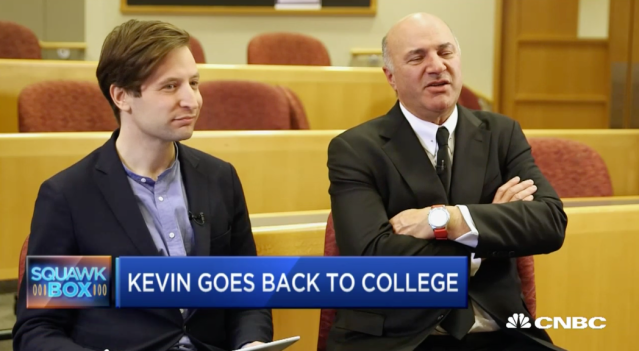On January 14 The Economist published a special report; Life Education — with the lead article, Life Long Learning Has Become an Economic Imperative. I am very glad they’ve done this.
Over the past decade while completing my PhD on innovation and entrepreneurship on campus and working full  time for the past three years, I’ve become convinced that learning to learn on your own is a critical skill for the future. I’ve prodded and pushed my students in multiple directions — makerspaces, MOOCs, hackathons, and more. My students and colleagues have taken the lead on their own (blended courses, multi-university courses, self-learning, and private online tutors). For those curious and driven, this is an amazing time to learn.
time for the past three years, I’ve become convinced that learning to learn on your own is a critical skill for the future. I’ve prodded and pushed my students in multiple directions — makerspaces, MOOCs, hackathons, and more. My students and colleagues have taken the lead on their own (blended courses, multi-university courses, self-learning, and private online tutors). For those curious and driven, this is an amazing time to learn.
The Economist special survey has some great articles and provides a solid range of topics to chew on. From the piece,
A paper published in 2013 by a trio of Canadian economists, Paul Beaudry, David Green and Benjamin Sand, questions optimistic assumptions about demand for non-routine work. In the two decades prior to 2000, demand for cognitive skills soared as the basic infrastructure of the IT age (computers, servers, base stations and fibre-optic cables) was being built; now that the technology is largely in place, this demand has waned, say the authors.
They show that since 2000 the share of employment accounted for by high-skilled jobs in America has been falling. As a result, college-educated workers are taking on jobs that are cognitively less demanding (see chart), displacing less educated workers.
This analysis buttresses the view that technology is already playing havoc with employment. Skilled and unskilled workers alike are in trouble. Those with a better education are still more likely to find work, but there is now a fair chance that it will be unenjoyable. Those who never made it to college face being squeezed out of the workforce altogether. This is the argument of the techno-pessimists, exemplified by the projections of Carl-Benedikt Frey and Michael Osborne, of Oxford University, who in 2013 famously calculated that 47% of existing jobs in America are susceptible to automation.
Whether a student, faculty, administrator or citizen — lifelong learning is the new reality. For those of us in higher education, its an extra special, once in a lifetime opportunity to use new models of instruction and delivery — and that is not code for online learning. What I am envisioning is more complex, textual and hands on than just online learning. I am thinking that the real world must become more of the campus rather than the digital world, but thats just me.


 time for the past three years, I’ve become convinced that learning to learn on your own is a critical skill for the future. I’ve prodded and pushed my students in multiple directions — makerspaces, MOOCs, hackathons, and more. My students and colleagues have taken the lead on their own (blended courses, multi-university courses, self-learning, and private online tutors). For those curious and driven, this is an amazing time to learn.
time for the past three years, I’ve become convinced that learning to learn on your own is a critical skill for the future. I’ve prodded and pushed my students in multiple directions — makerspaces, MOOCs, hackathons, and more. My students and colleagues have taken the lead on their own (blended courses, multi-university courses, self-learning, and private online tutors). For those curious and driven, this is an amazing time to learn.